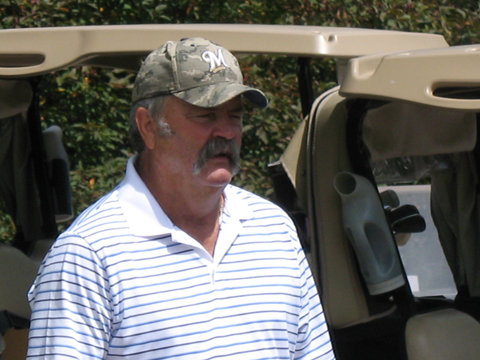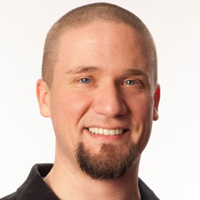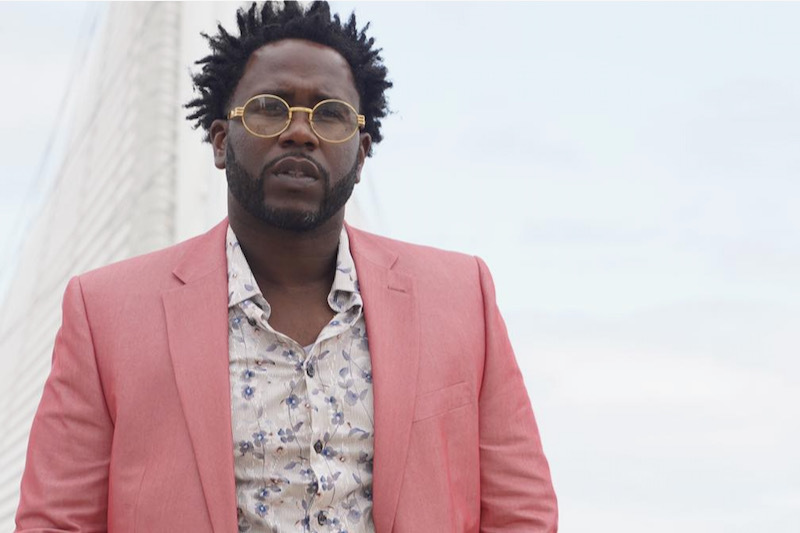OnMilwaukee.com catches up with one of the most popular Milwaukee Brewers of all time in Gorman Thomas, who talks about the 30-year anniversary of the 1982 American League Championship team, his love for the city of Milwaukee and the hard feelings he still has about what happened in 1983.
OnMilwaukee.com: Here we are in 2012, a nice round number removed from the 1982 American League Champion Milwaukee Brewers. What do you remember about that season, 30 years later?
Gorman Thomas: I remember a lot about it. I really do. When I say remember a lot, it's not something I did, it's something the team did. We floundered early then we picked up a head of steam. When you're playing during the course of a season, you really don't pay attention to what's going on around you. You show up at the ball park, you focus.
I was on Jack Clark's radio show down in St. Louis and they're doing the same thing, a 30-year celebration, and his show was focused on that we were talking about things that were memorable and basically, the memories that I have, were basically the last part of the season. We're going to Baltimore, we've got a three-game lead and we lose the first three games and we had to win the fourth game to win our division. Then we fly to California and we lose the first two and then we come back and win the next three here. Then we get into the World Series and you get so wound up and so intense you really don't know what's going on.
I remember my first time at bat, I remember getting a game winning hit, I remember catching a fly ball in center field and my knee kind of buckled and two runs scored. I remember two outs in the top of the ninth inning against (Bruce) Sutter and I fouled off four, five, six pitches and I finally strike out on a high fastball. Basically, that's about all I remember of the season. There were never really any high notes, never really any low notes because you just play the game each and every day. You get nine innings to play and you try and focus on that.
Robin had a sensational year for us. Molly (Paul Molitor), I don't know what he hit – he probably hit .330. CC (Cecil Cooper) probably hit in the high .300s as well. And Benjy (Ben Ogilvie), Teddy Simmons, Don Money, Jimmy Gantner, Charlie Moore. And all the pitching staff – (Mike) Caldwell, (Jim) Slaton, Vuke (Pete Vuckovich), Dwight Bernard, Jamie Easterly, Doc Medich, Bobby McClure – it's like it was yesterday. Not 30 years. A lot of great memories. We had a great team. We really had a great team. It's just unfortunate we didn't win.
That's the sour note about it all. Then I get traded in June the next year – that's a whole other ball of wax.
OMC: Three decades later, can you watch that last at-bat in the World Series against Sutter?
GT: I've never seen it. I've never seen it. The only reason I remember it is because I still remember seeing that fastball because I was looking for that split finger because he had a great one. Then I'm always reminded of it by a good friend of mine Kenny Reitz. He played with San Francisco, the Cubs and also St. Louis. And he says "Hey Gorm, hey Gorm – every time I walk by the front offices of Busch Stadium there's this big picture of you swinging at the last pitch and striking out at the end of the World Series." He says, "Man that's great – I see your ass every day!" Kenny, you know what, we don't need to bring that up all the time. That's the only reason why it's vivid in my mind."
OMC: What else sticks out to you about that '82 season?
GT: I remember Robin hitting two home runs against Baltimore in the fourth game. I remember Pete Ladd, more or less taking the bull by the horns and filling in for (Rollie) Fingers is not really the right way I want to say this, but they said, here, we need somebody to step up and be the closer. And Pete Ladd filled it perfectly. Then the unsung guys like I mentioned earlier, they all did what they did and they all did it magnificently. As it turned out, we came down to game 162 and if they hadn't had done what they did, we wouldn't have gotten there.
It was a great bunch of guys. People get tired of hearing that but it's true story. It's a true story. You had 25 guys and a coaching staff ... I saw one of our coaches, Ron Hanson in Baltimore and I hadn't seen him in years and it was like we hadn't skipped a beat. We had 25 guys, coaching staff, training staff, front office staff, the ownership – it was fantastic. It was fantastic. It was just great. You looked forward to going to the ballpark.
Nobody came in dragging in late. Nobody was a prima donna. Everybody was just one of the guys and we never had anybody that was really outspoken. You almost had to pry interviews out of us. Low key. Under the radar if you will. That's why we were successful. I think from '78 and '82, with the exception of the strike year in '81, we won over 90 games. We were a damn good team.
It was so much fun just to come to the ballpark. I couldn't wait to get here. And after the game was over, we didn't leave. We'd hang out, two hours after the game, we'd have a couple cola's and just talk about the game. It was absolute great experience. I miss it. I really do. The camaraderie. The silliness, the stupid little things we would do just for fun. It was fun. I can't embellish it too much for you. It was great. Just great.
OMC: You mentioned the trade in 1983 – that wasn't something you felt good about then, and now it seems like?
GT: No. Nooooo. There are no good feelings about that. Ah, God. It was a devastation to me. Never saw it coming. There was no justification for it. There was no reason for it. And it happened. I was just floored. I had no concept of what happened. I go to Cleveland, they're in last place, and they had good players, but they were already out of the race. They might have been 20 games under whoever was leading the division at the time. And playing here with the teams I played with from '78 through '82, we played every game like it was almost the seventh game of the World Series. That's how intense and focused our entire group was.
Then to go over there – like I said, they had a great bunch of guys , great players – but they were already out of it. So the intensity wasn't there. I got along real well with the guys, they were nice to me. It just happened. I don't think I ever got over it. I had played with these guys for seemed like forever. It was a hard pill to swallow. Even now just talking about it, it bothers me. It really does.
OMC: But, you still come around to the ball park and represent the Brewers now, so there was no love lost with Milwaukee and the Brewers?
GT: Oh, no. I've always been a Brewers fan. I signed in '69 with the Seattle Pilots, which became the Brewers. With the contracts I've had in the past with the Brewers I always had some semblance of affiliation with the club. Whether it was deferred money still in an account long afterwards or Wendy (Selig) gave me a job back in 1995 that carried on. In essence, I've been a part of the Milwaukee Brewers organization since 1969 to present. That's what, 43 years? I've always been a part of the organization. I wear this hat with pride. You never wore your hat when you played in public, but hell, I'm 61 years old.
If anybody says they don't like being recognized, they're not telling you the truth. It's always nice to be remembered. I take it as I made an impression on some people because of the way I played, not necessarily what I was able to accomplish as an individual. I played hard every day, I tried to give my best effort as soon as I got between the lines every day. It was a wonderful game. I couldn't have picked an organization, or a location, that would have been more suited to me than here.
OMC: To that end, how has Milwaukee treated you the last four decades plus?
GT: It's great. I've always been the kind of person if I walk into a place, a grocery store or Home Depot or a restaurant or something and someone recognizes me, hey, how are you doing? Nice to see you? They want to shake hands. And if they don't recognize me, that's fine too. I've never been that kind of person. It's always been a low key, low stress location and a great place to play.
We had great fans. Still have great fans. Of course we play in a new environment here but you have to change with the times, upscale your attractiveness for the fans. (Miller Park) is just a beautiful facility. It would have been wonderful to play inside this. It's just a tribute to the fan base that's always been great.
OMC: You and a bunch of your teammates from the '82 team will be getting together in a month down at the Grand Geneva Resort & Spa for the Swing With The Legends charity outing. You've been involved there for a long time. Can you talk about that event a little bit.
GT: You've got to have support for the function, you've got to have sponsorship, you've got to have a list of past players people want to meet. I'm not saying ex-players are above anybody, but if you've got Billy Bob Baker and you've got Al Kaline and Robin Yount, that's a big difference. It's a wonderful thing. It raises money for charity.
Anytime you can go out, play golf, raise money for charity, play at a wonderful complex which Grand Geneva, all the people at the resort are all first class people. It's just a wonderful venue, so how can you not want to go there? Kenny (Sanders) is a good spokesman for it. He's well respected. He's a very successful business man and plus, he's a friend. You add all those things up it's almost a slam dunk. It's flattering to be invited.
OMC: Do you like being asked to come out to these public events?
GT: Anybody that says it's not flattering to be invited, they're misspeaking. It's a misspoken situation. Granted, there's a lot of people that don't have the time that's free because they're in other enterprises, but if you can, if you have the time to play, and you enjoy playing, it's a chance to reconnect with past teammates or past competitors, and it's also nice to be able to raise money for charity. I played on the Celebrity Players Tour for 20 years and we went everywhere. We went to Calgary to Jamaica to upstate New York to San Diego and it was competition. You're playing for a purse but at the end of the day charities were making money. That's what we're there for.
OMC: How's your golf game now?
GT: It's getting better. It kind of starts slow. You don't hit balls during the winter time and it takes a long time to get your groove in and you just hope it's that day when you play that you hit the ball the way you want to hit it. I just came back from Baltimore – I played in a cancer charity up there for kids, and I'm going up to Connecticut at the end of July for Ahmad Rashad. Kenny Singleton, his name was on the one in Baltimore. If you have the opportunity it's almost slam dunk – you gotta do it.
OMC: Singleton wants you around after you robbed him of a home run in '82 during that pivotal stretch against Baltimore?
GT: He got up on the stage and said 'In recent past, I wouldn't have invited him here because of what he did to me.' He went on and on. I said Kenny, move on to the next guy, leave me out of it!
OMC: Are you a member at any area clubs?
GT: No, I just play. I just play.
OMC: You live just west of the ball park, so someone might run into you on the first tee around here?
GT: Yeah. You never know where I'm going to play. My game travels. When I'm playing well my phone never rings. If word gets out that I'm playing bad then my phone rings off the hook. I enjoy the game. It's actually the only game people my age, with all the physical restrictions that are going on, it's the only game we can participate in and be competitive. Golf is a game you can play until you die. It's like anything else – if you take it too serious you really can't play. But I enjoy it. I love playing golf, I love being competitive. It's a win-win situation.
Jim Owczarski is an award-winning sports journalist and comes to Milwaukee by way of the Chicago Sun-Times Media Network.
A three-year Wisconsin resident who has considered Milwaukee a second home for the better part of seven years, he brings to the market experience covering nearly all major and college sports.
To this point in his career, he has been awarded six national Associated Press Sports Editors awards for investigative reporting, feature writing, breaking news and projects. He is also a four-time nominee for the prestigious Peter J. Lisagor Awards for Exemplary Journalism, presented by the Chicago Headline Club, and is a two-time winner for Best Sports Story. He has also won numerous other Illinois Press Association, Illinois Associated Press and Northern Illinois Newspaper Association awards.
Jim's career started in earnest as a North Central College (Naperville, Ill.) senior in 2002 when he received a Richter Fellowship to cover the Chicago White Sox in spring training. He was hired by the Naperville Sun in 2003 and moved on to the Aurora Beacon News in 2007 before joining OnMilwaukee.com.
In that time, he has covered the events, news and personalities that make up the PGA Tour, LPGA Tour, Major League Baseball, the National Football League, the National Hockey League, NCAA football, baseball and men's and women's basketball as well as boxing, mixed martial arts and various U.S. Olympic teams.
Golf aficionados who venture into Illinois have also read Jim in GOLF Chicago Magazine as well as the Chicago District Golfer and Illinois Golfer magazines.




.jpg)


